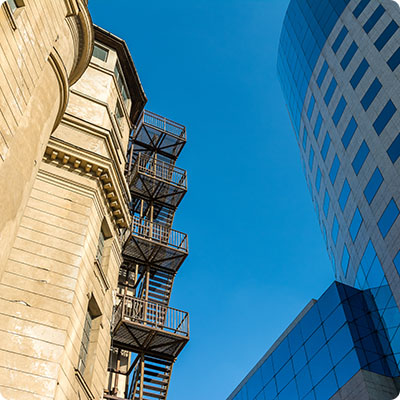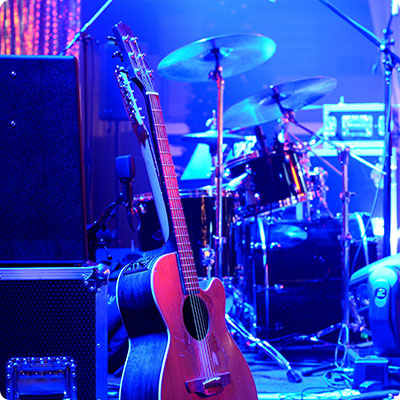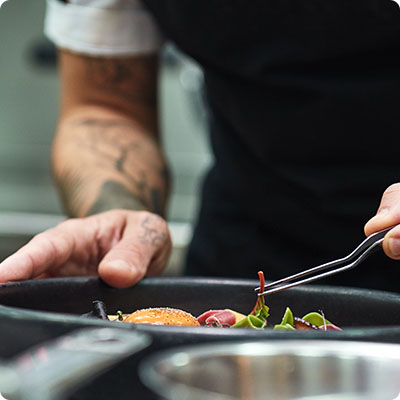Organize your stay Borneo
 Money Borneo
Money Borneo
Malaysia. Malaysia's currency is the ringgit (MYR or RM), divided into 100 denominations, but most locals call it the dollar. Subdivisions. Banknotes come in denominations of 1,000, 500, 100, 50, 20, 10, 5, 2 and 1 RM; coins in denominations of 1 RM, 50, 20, 10, 5 and 1 sen. Exchange rates (January 2024). 1 € = 5.08 RM; 1 RM = 0.19 €.
Brunei. The currency of Brunei is the Brunei dollar (BND or B$). For convenience, the symbol B$ has been used. The Brunei dollar is pegged to the Singapore dollar. Consequently, it can be used in Singapore (banknotes only), and conversely, Singapore coins and banknotes can be used in Brunei. Currency: Brunei dollar (BND). Exchange rates (January 2024). 1 € = 1.45 BND; 1 BND = 0.68 €.
Indonesia. The Indonesian unit of currency is the rupiah, or Indonesian rupiah (Rp). We have left a certain number of prices in US currency, as the dollar remains the international currency of reference, and prices, particularly those of medium and higher category hotels, were often given in this currency. However, in some places, such as Bunaken Island, accommodation and dives are quoted in euros. It is still possible to pay in rupees, but be sure to check the exchange rate beforehand to avoid any unpleasant surprises. Banknotes are available in denominations of 1,000, 5,000, 10,000, 50,000 and 100,000 rupees. Coins are available in denominations of 25, 50, 100 and 500 rupees, which you will hardly ever use. You'll often have large bundles of bills with you; and you'll often find it hard to "break" your big bills, as small street vendors will open their round eyes at the sight of a 100,000 Rp bill. So it's a good idea, especially if you're traveling outside the tourist areas, to carry lots of small bills. Remember to break your high-denomination notes when paying for a hotel or a more upscale restaurant, even if you still have some small-denomination notes in advance. And be careful with your change. It's easy to get confused by all those zeros. Exchange rate (January 2024): 1 € = 16,960 Rp.
Banks and exchange
Malaysian part. Changing money in major cities and tourist resorts is generally no problem. In all medium-sized towns, there are a large number of money changers open practically day and night. The best exchange rates, however, are to be found in the larger cities. A final word of warning: be sure to count your money, as money-changers may be tempted to keep an extra percentage for their own pockets. Banks are generally open from 10 a.m. to 3 p.m., Monday to Friday, and from 9.30 a.m. to 11.30 a.m. on Saturdays.
Brunei. For cash withdrawals, several banks have ATMs in the city center or in the Gadong district. You'll also have no trouble finding exchange bureaus, especially in upscale hotels.
Kalimantan. You can change money at banks and money changers. The US dollar is the most widely accepted currency, especially in remote areas.
But beware: if you want to change euros in remote areas, you may run into problems: either they'll look at your pretty, colorful Monopoly bill, or, more likely, they'll exchange it at the US dollar rate.
Note, however, that exchange fees can be multiplied by five from one exchange office to another (these fees are often already included in the exchange rate displayed) in France and abroad. So use your bank card instead. For card withdrawals and payments, the exchange rate used for transactions is generally more attractive than the rates charged by exchange offices (bank charges are added to this rate, as indicated below)
Find an ATM
Geolocation tools are available to help you find your nearest ATM. Visit visa.fr/services-en-ligne/ trouver-un-distributeur or mastercard.com/ fr/particuliers/trouver-distributeur-banque.html.
Malaysian part. ATMs are accessible everywhere, 24/7. Although the operation is simple, remember that the card can be swallowed by the machine: avoid withdrawals on weekend eves or during short stops.
Brunei. There's no particular problem paying by cash in the sultanate. As in Malaysia, cash dispensers are accessible everywhere, so avoid withdrawing money on weekends and public holidays.
Kalimantan. All international cards are accepted by ATMs in major cities (before you leave, ask your bank if your card will work abroad). In tourist areas, they are to be found on every street corner, and are certainly one of the most convenient ways of obtaining rupiahs. However, most ATMs limit the maximum amount you can withdraw per transaction to Rp 1,000,000 (about €59). BNI ATMs often give up to Rp 2,000,000.
Using an English-speaking ATM
Generally speaking, ATMs are used in the same way as in France. If French is not available, select English. "Retrait" is then called "withdrawal". If you are asked to choose between withdrawing from a "checking account", a "credit account" or a "saving account", select "checking account". Select "debit" for debit and "credit" for credit. (If you make a mistake in any of these options, don't worry - the only risk is that the transaction will be refused). Enter the desired amount and confirm ("enter"). To the question "Would you like a receipt?", answer "Yes" and keep your receipt in a safe place.
Credit card acceptance
Malaysian part. All cards are accepted. However, Visa is less well established than MasterCard or American Express. Banks displaying the MasterCard logo will provide you with foreign currency at their counters. In Malaysia, MasterCard cards are accepted at around 100 ATMs (Autobank and Southern Bank Berhad) and 26,400 merchants.
Brunei. All cards are accepted, but some credit cards may incur a local surcharge.
Kalimantan. Hotels, restaurants and high-end stores accept them without any problem. However, you won't be able to use your card in remote areas of Indonesia, so be sure to withdraw enough to cover your needs before leaving the major cities.
 Budget & Tips Borneo
Budget & Tips Borneo
Malaysian part. Compared with European countries, Malaysia is a very inexpensive country. It is, however, one of the most expensive countries in Southeast Asia. In Borneo, Sarawak and Sabah, accommodation and food are relatively inexpensive. Beware, however, that jungle tours can quickly add up, as they include accommodation, meals, transport, guides and excursions.
Brunei. The cost of living is roughly equivalent to Malaysia, a little more expensive for accommodation and food, but on the whole quite cheap.
Indonesian part. In Indonesia, the government counts 20% of the country's population as poor, but this figure does not correspond to international standards. You're considered poor in Indonesia if you earn less than €1 a day. Keep this figure in mind if you don't want to shock Indonesians, who don't understand why a family's monthly salary can be spent on one meal; or why a tourist, who is inevitably wealthy by national standards, will haggle over the price of a taxi-bike (becak ) for 2,000 Rp less... In short, even if you often feel like you're being ripped off, you can't forget that 17,000 rupees is just 1 euro.
 Passport and visas Borneo
Passport and visas Borneo
Malaysia. French, Belgian, Swiss and Canadian nationals may stay in Peninsular Malaysia and the state of Sabah for a maximum of 90 days for tourism or business purposes, provided they hold a passport valid for at least six months at the time of entry. For the state of Sarawak, the stay is limited to 30 days. You may be asked to show your return flight ticket at customs, to verify the actual duration of your stay. The Malaysia Digital Arrival Card was introduced on January1, 2024. This is a mandatory online form for international travelers. We advise you to apply for it at least 3 days before your arrival in Malaysia. This will provide you with a "pass" that will relieve congestion at airport immigration kiosks. Here's the link to fill in the Malaysian digital arrival card:
https://imigresen-online.imi.gov.my/mdac/main
Brunei. For stays of less than 90 days, French, Swiss and Belgian nationals are exempt from visa requirements. All you need is a passport valid for at least six months beyond the return date of your intended stay, a plane or bus ticket proving your departure, and sufficient funds to stay in the sultanate. For Canadians, the visa-free stay is limited to 14 days. Beyond this period, a visa is required. For further information, please contact the Brunei embassy in Paris.
Indonesia. An entry visa is required on arrival (eVOA: Visa On Arrival) in Indonesia. For French, Belgian, Swiss or Canadian nationals, the duration of the visa is limited to 30 days, renewable once at any immigration office in Indonesia. The visa costs US$35 (€32). For a 60-day visa, visit an embassy or consulate outside Indonesia. Any foreigner remaining in Indonesia after the expiry of this visa is considered to be overstaying, and is liable to severe penalties, including imprisonment. So never let your visa run out, thinking you'll solve the problem by leaving the country. In any case, don't forget to photocopy all your important documents. These photocopies will come in handy if your original documents are lost or stolen.
 Driver's license Borneo
Driver's license Borneo
If you're thinking of renting a car, you must be over 21 and have held your driving license for more than 2 years. Some rental companies set a minimum age of 25. You must also present a valid driving license and an international driving permit. This can be obtained from the town hall. You'll need to present a credit or debit card to collect the vehicle keys. The deposit will then be blocked on your account. Make sure you have sufficient funds in your bank account, and raise the spending limit if necessary.
 Health Borneo
Health Borneo
There is virtually no health risk on the Malaysian peninsula. However, cases of malaria and dengue fever have been reported in Borneo, particularly in eastern Sarawak. If you're planning to visit the jungle, it's essential to take appropriate anti-malarial medication, as prescribed by your doctor. There is no prophylactic treatment against dengue fever. The Aedes aegypti mosquito responsible for transmitting the disease is active during the day. It is advisable to wear loose-fitting, light-colored clothing previously impregnated with mosquito repellent, and to spray exposed areas of skin regularly with a tropical mosquito repellent. In the event of fever or unexplained aches and pains, seek medical advice as soon as possible.
In the event of illness, contact the French consulate. They'll be happy to help you and provide you with a list of French-speaking doctors. In the event of a serious problem, the consulate will also inform the family and decide on repatriation. To find out about emergency services and establishments that meet international standards, visit www.diplomatie.gouv.fr and www.pasteur.fr
 Mandatory vaccination Borneo
Mandatory vaccination Borneo
No vaccinations are required to enter Borneo and Malaysia, with the exception of yellow fever vaccine if you have recently traveled to an infected area. The vaccines listed below are strongly recommended by the French health authorities (source: Institut Pasteur).
Hepatitis A. Previous immunity makes vaccination unnecessary. It is common if you have a history of jaundice, a prolonged stay abroad or are over 45. Hepatitis A is usually benign, but it can be serious, particularly over the age of 45 and in cases of pre-existing liver disease. It can be caught through water or poorly washed food. If you have liver disease, vaccination against hepatitis A is highly recommended before any trip where hygiene is precarious. It should be administered as a single injection at least 15 days before departure. A booster dose is required 1 to 3 years later. Vaccination is possible from the age of 1.
Japanese encephalitis. Japanese encephalitis is transmitted by a nocturnal mosquito (peaks at dusk and dawn), mainly in rural areas. Depending on the region, transmission may be perennial, or limited to the rainy or hot seasons. Most forms of the disease are symptomless, but it can also lead to severe neurological sequelae and even death. The Haut Conseil de la Santé Publique (HCSP) does not recommend systematic vaccination, but since September 2013 has strongly recommended it in the event of expatriation or a stay with outdoor exposure in rural areas (e.g. camping, hiking, cycling, rice paddies and flood irrigation areas, outdoor work). 2 injections are required, 28 days apart, with a booster 12 to 24 months after the first injection.
Hepatitis B. Hepatitis B is more serious than hepatitis A. It is contracted through sexual intercourse or blood. The hepatitis B vaccine is given in two injections at one month, followed by a single booster six months later.
Rabies. Rabies is still present in the country, particularly in rural and wild areas. Contact with dogs, cats and other mammals that may carry the virus should be avoided. The vaccine is recommended for prolonged stays in isolated areas. It consists of 3 injections spread over 28 days. The first symptoms (phobia of air and water) appear between 30 and 45 days after the bite. Once these symptoms have been observed, death occurs within a few days in 100% of cases. In the event of any doubt following a bite, it is essential to consult a doctor, who will administer an anti-rabies vaccine combined with appropriate treatment. Preventive vaccination does not exempt you from curative treatment in the event of a bite.
Typhoid fever. Typhoid fever is a bacterial infection characterized by high fever, febrile diarrhea and loss of consciousness. The most severe forms can lead to digestive, neurological or cardiac complications. The incubation period varies from ten to fifteen days. Contamination occurs through stools or saliva, either directly (contact with a sick person or healthy carrier) or indirectly (ingestion of contaminated food: raw vegetables, seafood, water and ice cubes). Vaccination is recommended for long stays in unhygienic conditions. A single injection 15 days before departure will protect you for three years.
For more information, visit the French Ministry of Health website (www. sante.gouv.fr) to find vaccination centers near you.
 Security Borneo
Security Borneo
Malaysia is a safe country with a stable political situation. However, beware of pickpocketing and snatching, which are on the increase, especially in urban areas and tourist sites. Pickpocketing is mainly carried out by thieves on motorcycles. The state of Sabah on the island of Borneo, and especially its eastern part, presents security risks, due to the political situation and the high risk of kidnapping.
The general level of security in Indonesia is satisfactory, and travel there is without difficulty. Following the various waves of terrorist attacks in the country, the Indonesian authorities have stepped up security measures in strategic locations, notably airports and tourist resorts. These attacks are a reminder, however, that places frequented by foreigners can be prime targets for terrorists.
According to the Ministry of Foreign Affairs, "Brunei's crime rate remains one of the lowest in Asia. However, there has been an increase in assaults and thefts over the past year".
For the latest information on safety in Brunei, consult the "Conseils aux voyageurs" section of the French Ministry of Foreign Affairs website: www. diplomatie.gouv.fr/voyageurs. Be aware, however, that the site provides an exhaustive list of potential dangers, which can sometimes give a rather alarmist picture of the real situation in the country.
 Time difference Borneo
Time difference Borneo
Whichever country you're in on the island, allow for a 6-hour time difference (7 hours in winter) with France. When it's midday in France, it's 6pm (or 7pm) in Borneo.
 Spoken languages Borneo
Spoken languages Borneo
Malaysia. Bahasa Malaysia (Malay) is the official language. It's a simple, easy-to-learn idiom, similar to Bahasa Indonesia. The Latin alphabet is used. This national language has been an indispensable tool for unifying the country and overcoming community barriers. English, the language of the colonizers, is the second language spoken by the majority of the population, especially in the cities. It is the language of business. Many Chinese dialects, including Hokkien, Hakka, Cantonese and Mandarin, are used by Malaysian Chinese and Tamil by the Indian community.
Brunei. Melayu Brunei is the official language of the sultanate. It is one of the Malay languages of the Malayo-Polynesian branch of the Austronesian languages. Nearly one in two inhabitants speaks English. Cantonese is also widely spoken by the Chinese community and in business circles.
Indonesia. The Republic of Indonesia is not only the world's largest archipelago, it is also a vast collection of peoples and communities. More than 700 dialects are currently spoken in Indonesia, and many Indonesians speak them as their mother tongue. Five languages have more than 10 million speakers. These are Javanese, with over 80 million speakers, Soundanese, Pesidir, Madurai and Malay. On Kalimantan, the Dayak languages (Ngaju is the most widely spoken) all belong to the Indonesian section of the Austro-Asian family. These languages survive in rural areas, but are gradually disappearing in urban centers. Because Indonesia, like any modern state, needs a means of communication that everyone can understand, Indonesian Malay (Bahasa Indonesia) has become the official language. As it is not associated with any particular ethnic group, this language symbolizes national unity, in contrast to India, where Hindi is only spoken in the north of the country. Indonesian is largely derived from Malay, to which it is closely related, but it is peppered with Sanskrit, Arabic, Persian, Chinese, Dutch, Portuguese and, more recently, English and French. As a result, various words have gradually and imperceptibly found their way into Bahasa Indonesia, which became the country's official language in 1928. It's a very simple language that can be learned quickly; it has no grammar or conjugation. To form an adverb, for example, simply say the word twice. In Indonesia, Bahasa Indonesia is only the second language learned, after the mother tongue. It is compulsory to learn it at school, but in some remote areas of Kalimantan, people still don't know it, creating difficulties of understanding between Indonesians themselves.
 Communication Borneo
Communication Borneo
Internet coverage is very good in Malaysia. Most establishments, restaurants, hotels, cafés etc. offer free WiFi. Internet cafés are becoming increasingly rare, but you'll still find a few in the big cities and most touristy areas. When you're trekking through the jungle, the connection will be very unpredictable or non-existent.
For Internet fanatics, buy a local prepaid SIM card. The most reliable cell phone operators in Malaysia are : Celcom (www.celcom.com. my), DiGi (www.digi.com.my) and Hotlink (www. hotlink.com.my). In Kalimantan, Telkomsel (www.telkomsel. com) is a good option.
 Electricity and measurements Borneo
Electricity and measurements Borneo
Electricity. 220V-240V in all three countries. Blackouts are almost non-existent in Brunei, and rare in Malaysia.
Weights and measures. All three countries have adopted the metric system (measuring in meters and weighing in kilograms), while retaining some use of the English system. In Brunei, despite the English influence, the metric system is used exclusively.
 Luggage Borneo
Luggage Borneo
A watchword: travel light! Discovering Borneo means using a wide variety of means of transport, including planes, buses and boats, so it's best to be light and comfortable in your clothes. Especially as some airlines heavily tax overweight suitcases. A backpack or handbag that you can take everywhere is ideal. If you're likely to be away on a 2 or 3-day excursion, consider taking a smaller backpack where you can carry only the essentials. The essentials: flip-flops, walking shoes, headgear, K-Way (a poncho is even better), wool (for air-conditioned bus journeys), sunglasses, sunscreen, mosquito repellent (they're voracious), flashlight.
Checked baggage. Generally speaking, 23 kg of baggage is allowed in the hold for economy class, and 30 to 40 kg for first and business class. Some airlines allow
two pieces of hold baggage up to a total weight of 40 kg. Please check your ticket for details before departure.
Hand luggage. In economy class, one piece of hand luggage and one accessory (handbag, laptop computer) are allowed, all of which must not exceed 12 kg or 115 cm in size. In first and business class, two pieces of baggage are allowed in the cabin. Liquids and gels are forbidden: only tubes and bottles of 100 ml maximum are tolerated, and then only in a closed transparent plastic bag (20 cm x 20 cm). The only exceptions to this rule are baby food and medicines accompanied by their prescription.
When it comes to excess baggage, airlines are now rather strict.
While they'll sometimes let you off the hook for an extra 1 or 2 kg on certain destinations, you won't have any leeway on African destinations, where passenger demand is so high! If you travel light, don't be surprised to be accosted several times in the check-in hall by other travellers asking you to take those kilos you're not using. The choice is yours, but this practice is forbidden, especially if you don't know what you're being asked to carry. After all, once you've exceeded the weight limit, the axe falls, and it falls hard. Note that airlines sometimes offer discounts of 20-30% if you pay for your excess baggage on their website before you get to the airport. If the cost is still too high, you still have the option of sending part of your belongings by post, destination permitting.
Loss - Theft
On average, 16 passengers out of 1,000 do not find their luggage on the conveyor belt on arrival. If you're one of the unlucky ones, go to your airline's counter to report your missing baggage. For your claim to be admissible, you must react within 21 days of the loss. The airline will provide you with a form, which you should return by registered mail with acknowledgement of receipt to their customer service or baggage claims department. In most cases, you'll get your luggage back within a few days. In all cases, the airline is solely responsible and will have to compensate you if you do not see the color of your belongings again (or if some items are missing from your baggage). The reimbursement ceiling is set at €20 per kilo, or a flat-rate compensation of €1,200. If you consider that the value of your belongings exceeds these ceilings, you are strongly advised to inform your airline at check-in (the ceiling will be increased for a fee), or to take out baggage insurance. Please note that hand baggage is your responsibility, not that of the airline.















